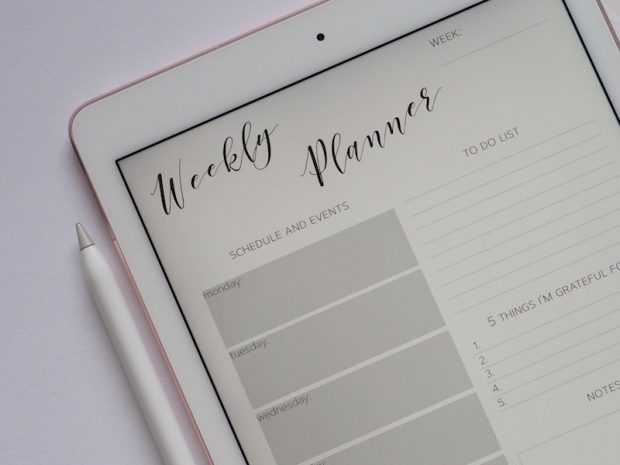I hope anyone who has been reading my blog for any length of time or who knows me personally would already know this, but I feel the need to share this caveat before diving into today’s topic. I am not trying to make light of the pandemic. Many have lost their lives, loved ones, and suffer long-term health challenges after having COVID. Good, hard-working people have lost their businesses, jobs, and homes. Many are living in isolation, fear, and have lost their sense of peace. While I acknowledge all of these very real things, I am not an expert in any of them. What I am an expert in is how infertility and the pandemic have impacted my life and where those things intersect. That’s what I’m sharing today. 🙂
Experiencing infertility has made it easier for me to cope with the pandemic. Maybe any type of suffering would prepare me to “suffer better” when I encounter future suffering, but these two experiences have elicited so many of the same feelings, I couldn’t help myself from reflecting on that here.
Planning for the future is almost impossible.
When we were married, we had a lot of plans for the future. Everything went exactly to plan until we started trying to grow our family. Whether or not our family was going to grow became a roadblock in our decision-making.

Should we buy the bigger car to accommodate a car seat or two or three? Should we plan that international vacation 8 months from now? Should we commit to 2 years of grad school to further our careers? (Praise God for a life in which these were the decisions we had to make! That being an immense privilege is not lost on me.) However, the decision we would make in each case would differ dramatically if we *knew* we would or would not have children soon. I felt paralyzed by the unknown.
While we figured out how to get unstuck in our decision-making related to whether or not we would have kids, all these same feelings came flooding back during the pandemic. It became impossible to plan for 6 months from now because we had no idea: if we’d have our jobs, if travel would be safe, if the economy could withstand the lockdowns, if there would be toilet paper or even food at the grocery store, if the virus would impact the world for a few weeks or the next 5 years, etc. So many unknowns.
Especially in the beginning, we had so little information about the virus and how it would impact the world. We’ve been taking nearly everything day-by-day and it feels so familiar to our infertility journey — doing the best we can with what we know to be true in the moment.
We are not in control.
I might have known this intellectually, but it was still a bit of a shock at the start of our infertility journey. For much of our young adult lives, if we worked hard enough at something we achieved our goals. When I practiced enough, I made the sports team. When I studied hard, I did well in school. When I applied for a job and diligently prepared for the interview, I got the job. Oh how naive my little type A heart was!!
Infertility taught me I couldn’t just work harder or even smarter to grow our family. There was no prayer we could say or medical treatment we could try that would guarantee a biological child on the other end. It was in God’s hands, as with everything in life. We trusted the Lord could (and still can) end our infertility at any time by giving us a biological child, in spite of our medical diagnoses. That is not what He has allowed to happen in our lives up until this point, so we trust He can use these challenging circumstances for His glory.

In the same way, I am not in control of ending this pandemic. I can do my part to avoid spreading it, but I am only a single person in a world of many. I take comfort in the fact our Creator knows what will happen. He is allowing me to experience life now (as opposed to any other time period,) so I will praise Him and trust in His provision. I was never really in control anyway, and it’s not a bad thing to be reminded of that now and then!
I’ve had to be very intentional about self-care.
I remember almost a decade ago, the first time I met another woman my age who was experiencing infertility. When I heard her tell her story, it was life-changing. I felt so seen and validated in my pain. Until that point, people (including my physicians) questioned why I was in such a rush to have children and why I was so upset it wasn’t happening. They kept telling me I was young and healthy and that it would happen eventually, especially if I could just relax and not think about it. We all know how that went. 😉
This woman’s example helped me realize I was grieving something worth mourning. It was then I started to prioritize my mental health alongside navigating the physical parts (shots, pills, tests, etc) of infertility. Rather than wallowing in gallons of my own tears each month for weeks after taking a negative pregnancy test, I allowed myself a set period of time each month to lose myself in my grief. Feeling all my feelings, including the otherwise unwelcome ones like self-pity. Did my grief ever overflow into other days? Of course, but then I did things that reminded me how strong and good my body was, like running. I exercised my motherly heart by serving others, like volunteering for a non-profit. I talked to a therapist about unresolved grief in other areas of my life. I ate healthy food and exercised. I prayed and turned to scripture for comfort.

A couple months after the pandemic started, after not leaving the house for probably the longest period of time ever in my adult life, I felt so down. I was glued to the news for updates on the progress of the pandemic, which in hindsight was a mistake. It was epically depressing. When I realized how sad I was, at first I felt guilty. There were so many others who were impacted much more — losing loved ones or their businesses, dying alone without visitors in the hospital, etc. It reminded me of how I felt when we first started to navigate infertility. I had a wonderful husband, home, job, extended family — so much to be grateful for. My pain over infertility felt trivial and maybe even unworthy of the weight it had taken on in my life.
But the more I talked with friends and family about the pandemic, I realized we were all feeling sad. We had all lost something — the future we planned for ourselves. We were all grieving life as we knew it. We still have no concept of when things will return to some semblance of normalcy.
A few months in, I started to be more intentional and proactive about taking care of my mental health. I turned off the news. I went on long walks every day with Mark and the cutest pup on earth. I ate healthier and took my vitamins more diligently. I started a “Read the Bible in a year” program. I vented to close friends when I was struggling. It all helped so much and reminded me that while I’m not in control of the the pandemic, I am in control of the inputs I allow into my life and my attitude. I am in control of what I do with that pain and sadness. I’m not sure I would’ve been able to course correct so quickly if I hadn’t recognized the same types of feelings I had in the early days of infertility.
Friend, if your’e struggling to cope with the pandemic or the changes it has unexpectedly brought into your life, I’m praying for you. <3
